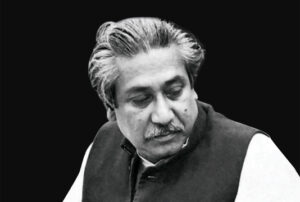The red sun rose on the eastern horizon this morning heralding the New Year 2016, bidding farewell to an eventful 2015 into eternity, with new promises as well as challenges for the people of Bangladesh as for those of the rest of the world. The coming of the New Year was preceded by the elections in 234 municipalities, on a party basis for the first time. There have been winners and losers, and differences of interpretation of the results, yet the democratic process has remained pronounced. After a disturbed beginning over political movement of the opposition, a relatively tranquil environment in 2015 gave economic activities a fresh lease of life. The return of the opposition to the second election after the 3-month turmoil has further consolidated this optimism. The opposition has taken part in the Dhaka and Chittagong City Corporaion elections by ending the agitation that was ruthlessly suppressed. Yet threat of terrorist attacks has compelled the banning of 31st night celebrations, just like cities in the rest of the globe went under alert.The air of optimism has been brought by some developments. Implementation of the Land Boundary Agreement between Bangladesh and India led to the resolution of the six-decade-old problem of 52,000 people of 161 enclaves inside each other’s territories, who lived in a stateless environment all these years. An initiative has been taken for survey of the unmarked portions of the 4096-kilometer-long border, and strengthening of connectivity to increase people-to-people contacts, trade, commerce and friendly relations. Bangladesh has been honoured for notable initiatives taken to protect against climate change by launching the world’s first climate action plan, success in microcredit programs, women empowerment and poverty reduction. The preceding year has been marked also by the start of work of construction of the main bridge over the Padma primarily with domestic resources. The economic growth rate has remained above 6.5 percentage points. On the political and social fronts however a deep hole that has set in, has grown bigger in size rather than narrowing down.
On the international front, the world is now at a crossroads with old Cold War foes starting to reassert their own positions. At least half a dozen emerging nations are very active to have their say in global and regional affairs. The Syrian war has taken complex dimensions with a new alliance emerging under direct Russian involvement. An Islamic Alliance against militancy has again been announced by Saudi Arabia alongside the US-led coalition. The fierce multi-pronged battles that are being fought primarily targeting the ISIS with occasional frictions between allies of the US and Russia carry risks of leading to a Third World War, according to strategists. Fresh alignments are taking roots also in areas of trade and finance with the Asian Infrastructure Investment Bank coming up with China’s backing, and the US-backed Trans Pacific Partnership taking shape with veiled geopolitical objectives. Against this backdrop Bangladesh needs to chart its path craftily to steer its economic momentum clear of visible adversities. External relations of a country are dependent on its internal strength. A country can be called strong to the optimum level if different sections of its people operate under a rock solid unity in diversity. Unity is the strongest when all sections of the people have strong emotional communion and mutual give and take from their respective positions of dignity. Economic growth should be strongly balanced through distribution of wealth under some rules based on consensus. Otherwise the bond of unity shall remain fragile and keep the country weak both internally and externally.



